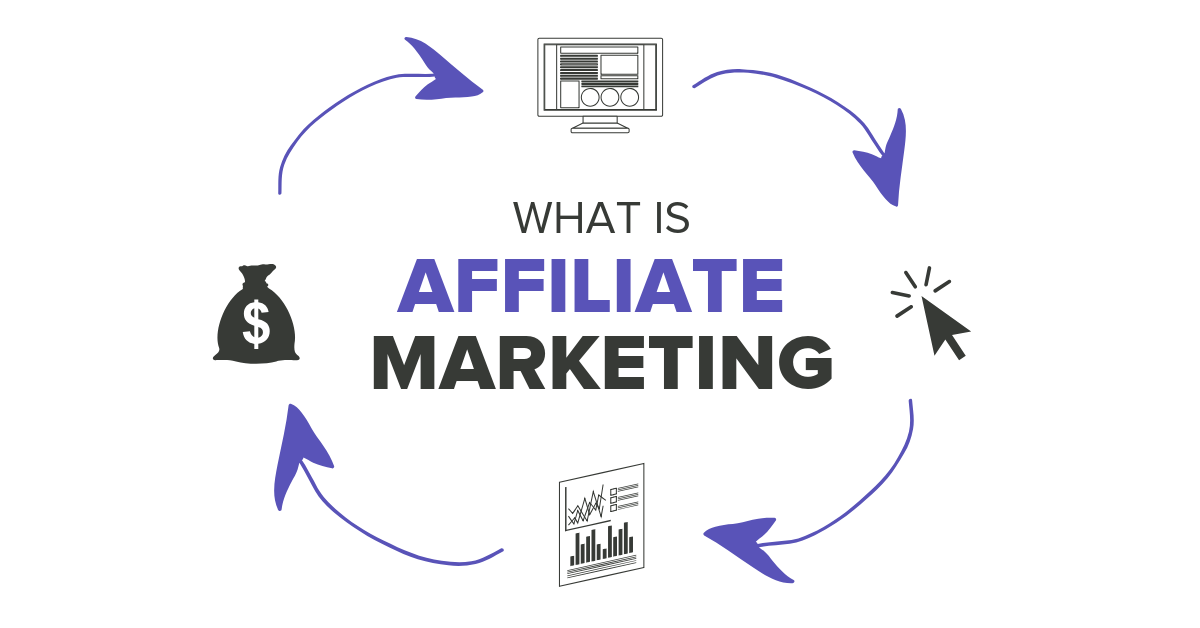What Is Affiliate Marketing?
Affiliate marketing is a performance-based marketing model where businesses reward affiliates (individuals or companies) for driving traffic, leads, or sales through their promotional efforts. Affiliates typically use blogs, websites, social media platforms, or email campaigns to promote products or services via unique tracking links.
- How It Works:
- Affiliates promote a product or service.
- Customers click on the affiliate’s unique link and make a purchase or take a desired action.
- The affiliate earns a commission based on the agreed terms.
This win-win model benefits both businesses and affiliates, creating a symbiotic relationship that fuels growth.
Why Affiliate Marketing Is Vital in Digital Strategies
- Cost-Effective Performance Model
Unlike traditional advertising methods that require upfront investments with no guaranteed results, affiliate marketing is performance-driven. Businesses only pay when a specific action, such as a sale or lead generation, occurs. - Expanded Reach
Affiliates act as brand ambassadors, often targeting niche audiences that businesses might struggle to reach on their own. By partnering with influencers, bloggers, or websites in related industries, businesses can tap into new markets. - Boosted Credibility and Trust
Affiliates often have established relationships with their audiences, and their endorsement lends credibility to the promoted product or service. Consumers are more likely to trust recommendations from sources they already follow or respect. - Scalability
Affiliate programs can be scaled to fit the needs of any business, from startups to large enterprises. As the program grows, businesses can onboard more affiliates to drive higher traffic and revenue. - Enhanced ROI
The performance-based nature of affiliate marketing ensures that every dollar spent is tied to measurable results, leading to a higher return on investment compared to many other digital marketing channels.
How Affiliate Marketing Complements Other Digital Strategies
- SEO (Search Engine Optimization)
Affiliates often create SEO-optimized content, such as product reviews or comparisons, which drives organic traffic to the business’s website. This complements the brand’s own SEO efforts by increasing online visibility. - Social Media Marketing
Affiliates use social platforms to promote products through posts, reels, or live sessions, enhancing the brand’s presence on platforms where their target audience is active. - Content Marketing
Affiliates generate valuable content, such as blogs, videos, or tutorials, that educates and informs potential customers about the product. This aligns with a brand’s broader content marketing goals of engaging and converting users. - Email Marketing
Affiliates often have extensive email lists, allowing them to promote products directly to a highly targeted audience, complementing a brand’s email marketing campaigns.
Key Benefits for Businesses
- Low Entry Barrier
Starting an affiliate program doesn’t require significant upfront costs. Platforms like ShareASale, Commission Junction, and Rakuten make it easy to launch and manage programs. - Analytics and Insights
Affiliate marketing platforms provide detailed analytics, helping businesses track performance, identify top-performing affiliates, and optimize strategies. - Increased Customer Acquisition
By partnering with affiliates who specialize in niche markets, businesses can acquire customers they may not have reached through traditional advertising. - Long-Term Partnerships
Successful affiliate programs foster long-term relationships with top-performing affiliates, creating a sustainable and consistent revenue stream.
Best Practices for Integrating Affiliate Marketing into Digital Strategies
- Define Clear Goals
Establish measurable objectives, such as increasing website traffic, generating leads, or boosting sales. - Choose the Right Affiliates
Partner with affiliates whose audiences align with your target market. Look for influencers, bloggers, or content creators who have credibility and engagement within your industry. - Offer Competitive Commissions
Attractive commission rates motivate affiliates to prioritize your products or services over competitors’. - Provide Marketing Materials
Equip affiliates with high-quality banners, product images, and promotional content to ensure consistent messaging and branding. - Track and Optimize Performance
Use tracking software to monitor affiliate performance and identify opportunities for improvement. Regularly analyze data to refine strategies and enhance ROI.
Challenges and Solutions in Affiliate Marketing
- Fraudulent Activities: Affiliates may engage in unethical practices, such as cookie stuffing or fake clicks.
- Solution: Use reliable tracking tools and conduct regular audits to ensure compliance.
- Competition Among Affiliates: Affiliates promoting similar products may compete for the same audience.
- Solution: Offer unique incentives or exclusive deals to differentiate your program.
- Brand Reputation Risks: Affiliates’ behavior can impact your brand’s image.
- Solution: Establish clear guidelines and vet affiliates before onboarding them.
Conclusion
Affiliate marketing plays a vital role in digital strategies by offering cost-effective, scalable, and performance-driven solutions for businesses. By leveraging partnerships with trusted affiliates, brands can expand their reach, build credibility, and achieve their marketing goals.
When integrated thoughtfully with other digital channels like SEO, social media, and content marketing, affiliate marketing can become a powerful engine for growth. For businesses looking to maximize their digital strategies, affiliate marketing is not just an option—it’s an opportunity to thrive in today’s competitive landscape.

